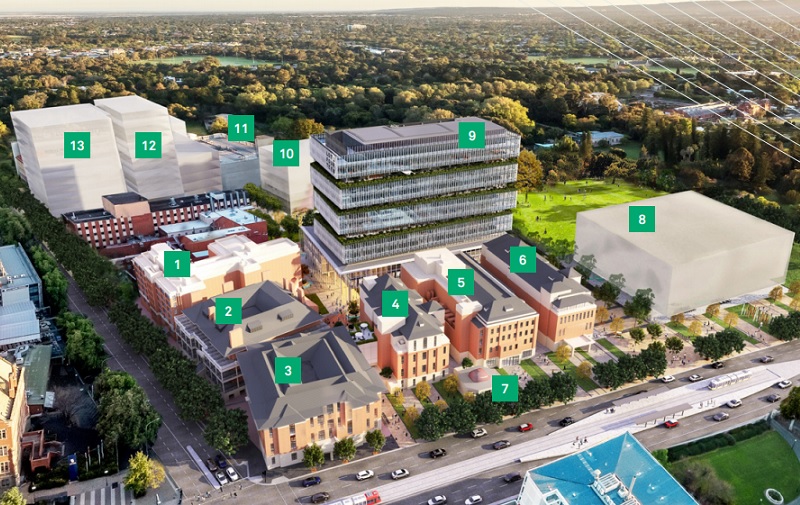Google Joins Amazon at Adelaide’s $2bn Tech Hub
Google is the latest tech giant to sign up for space in Adelaide’s Lot Fourteen which is currently taking shape in the city’s CBD.
The announcement comes after Amazon’s decision in February to move into the precinct.
The development is aimed at hi-tech industries including artificial intelligence, machine learning, cybersecurity, data analytics, computer vision, augmented/virtual reality and the internet of things.
The Lot Fourteen plans consist of six refurbished state-heritage buildings, a café, the Hanson building and five new buildings.
It will include a flagship 16-storey entrepreneur-and-innovation centre expected to open in late 2023.
Quintessential Equity are working on the $400-million building designed by Baukultur, which was approved in February.
The precinct, which will take a decade to create, will eventually have 650 start-up desks, 100,000sq m of office space, 35,000sq m of open space and 20,000sq m of cultural space, including the centrepiece Aboriginal Art and Cultures Centre.

Work on Lot Fourteen started in 2017 after the demolition of the Royal Adelaide Hospital.
In 2018 a master plan was signed-off on and the precinct became the cornerstone of the Adelaide City Plan.
The state and federal governments have so far invested $722 million while the private sector has allocated $1.2 billion for the project.
Premier Steven Marshall said having Google in the precinct would enhance SA’s growing hi-tech reputation and create jobs.
“South Australia has world-leading capabilities in artificial intelligence, data analytics and cyber security that make us globally interesting and provides digital tech companies with an opportunity to come together to partner on projects that can literally change the world we live in,” Marshall said.
Google’s Cloud public sector team at Lot Fourteen will work in health and medical research as well as using the hub as a training and event venue for its customers and partners.
The team's director in Australian and New Zealand, Michael Grantham, said the state's health capabilities were closely aligned with Google Cloud’s strategic priorities.
Since its inception, the tech-hub population has grown to 1000 people in operations including the Australian Space Agency, Defence and Space Landing Pad, MIT bigdata Living Lab, Smart Sat CRC, The Circle First National Entrepreneur Hub, and the Australian Institute of Machine Learning as well as the Space Discovery Centre and Mission Control Centre.















